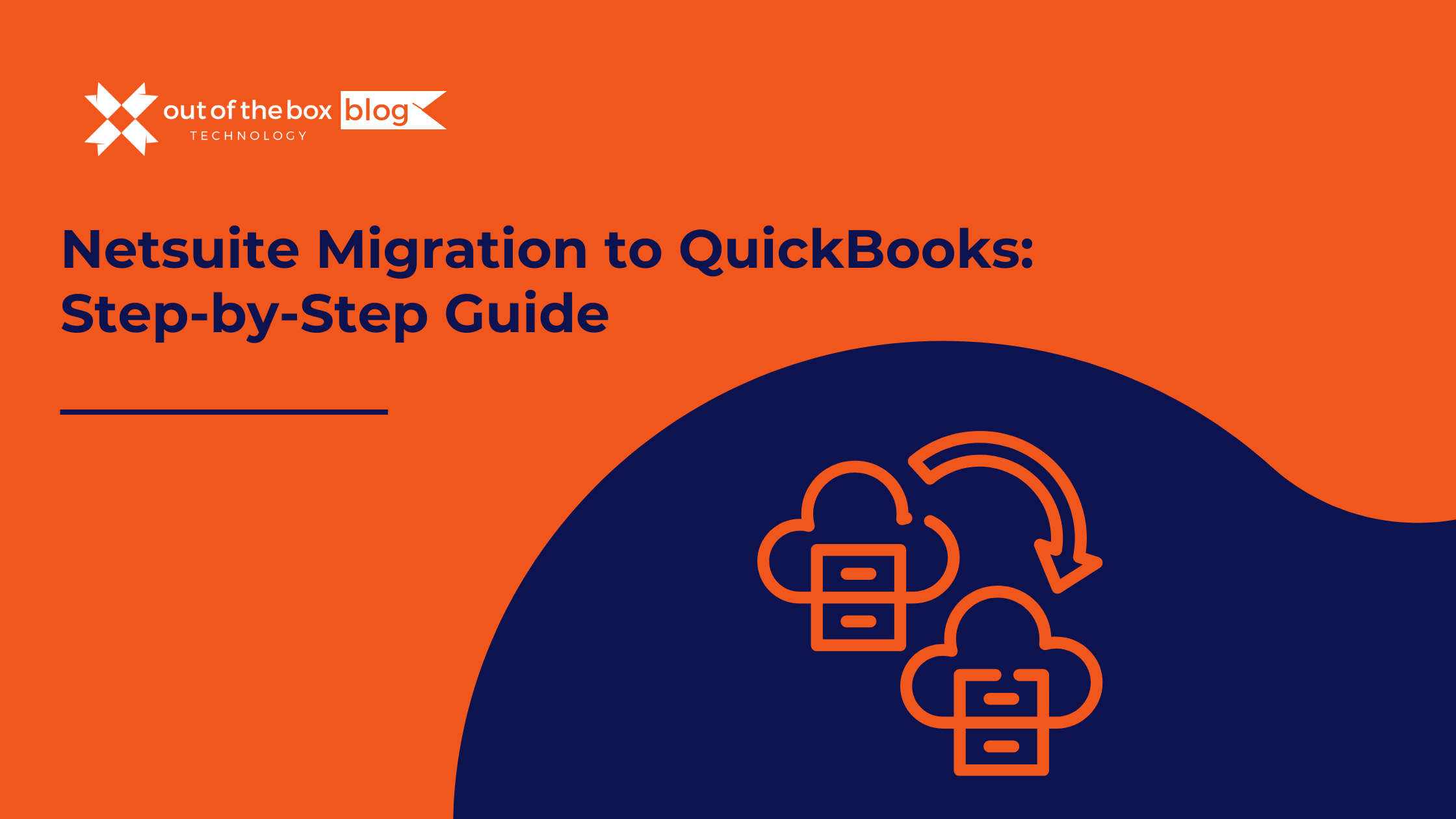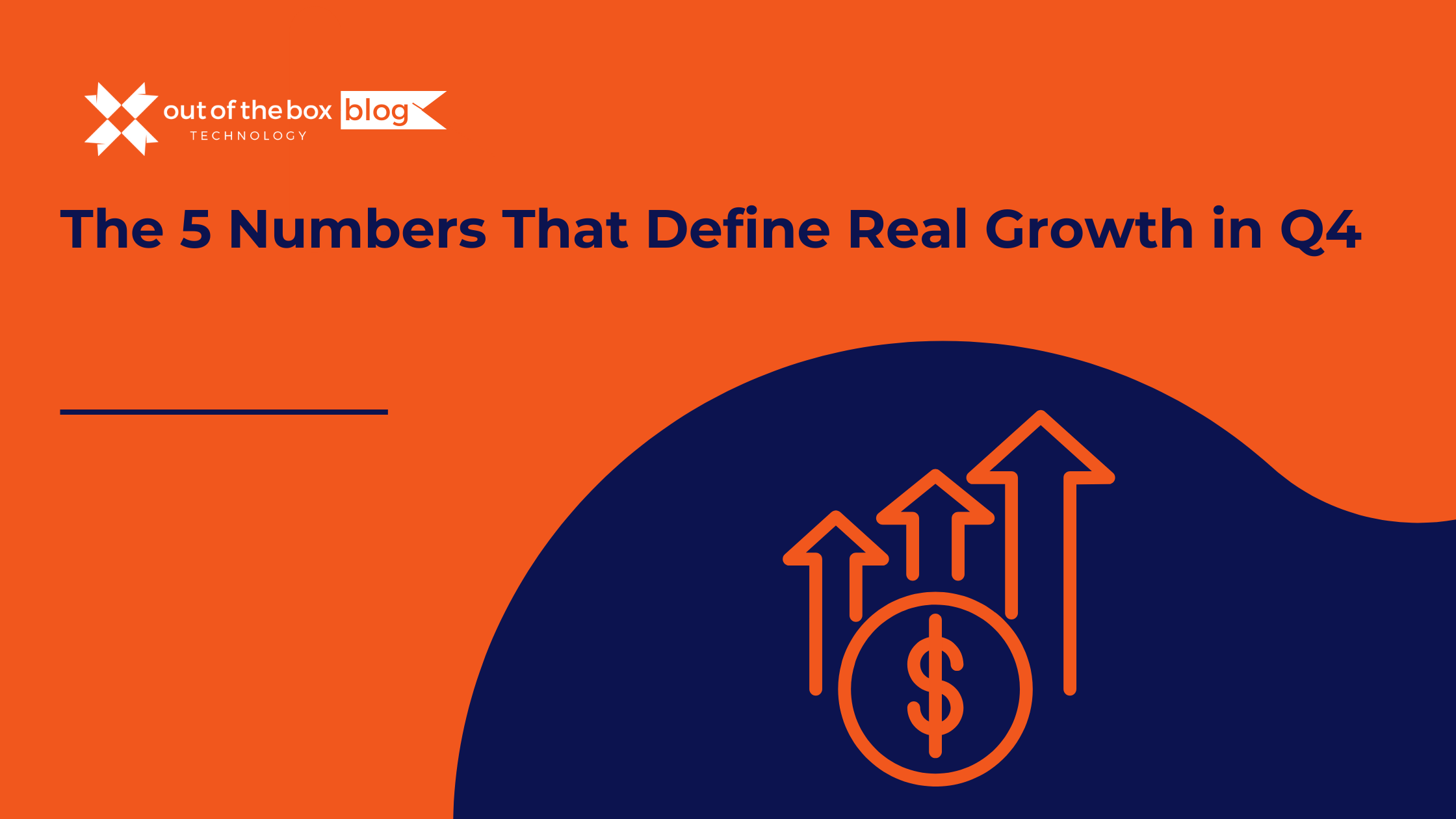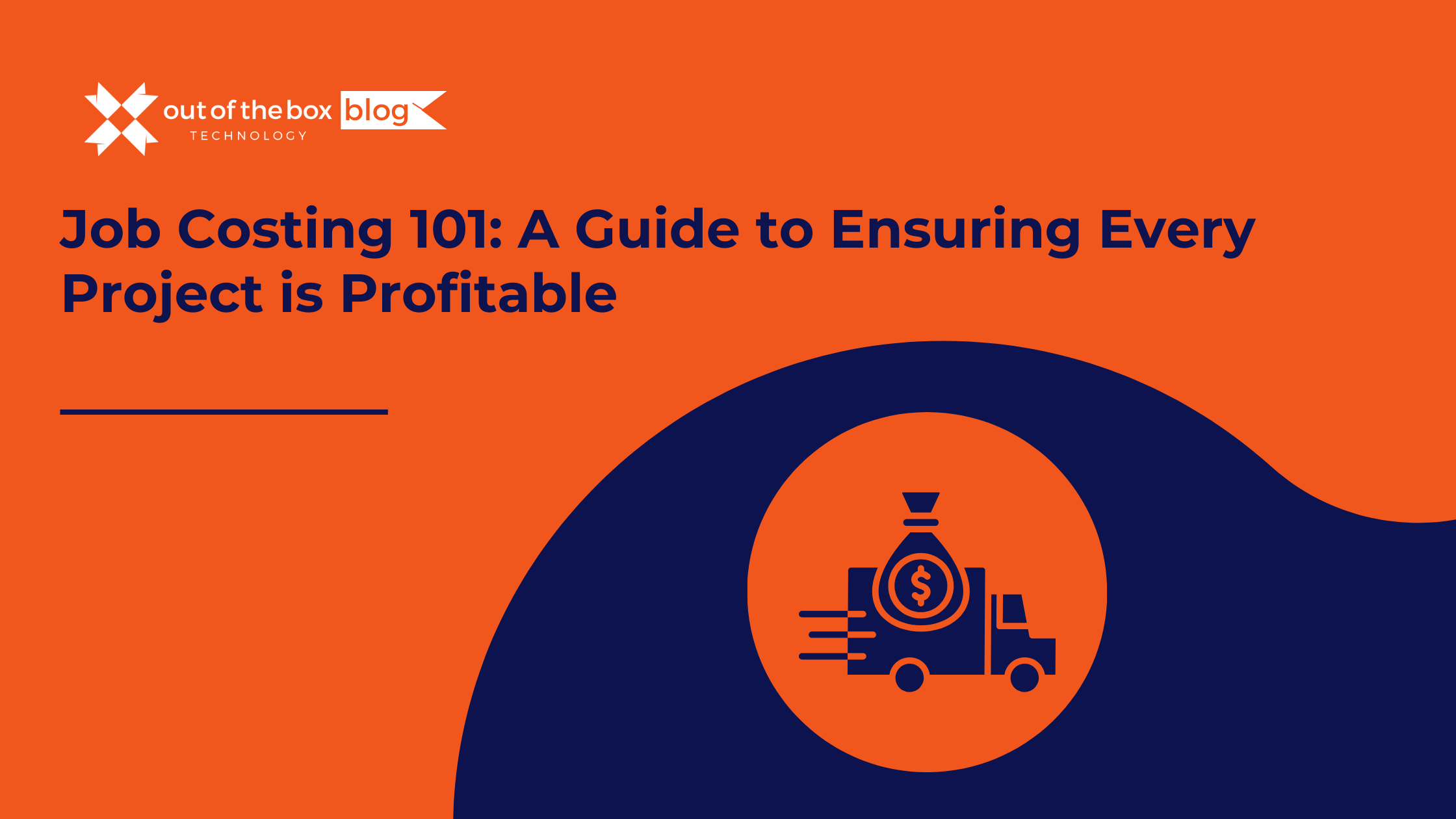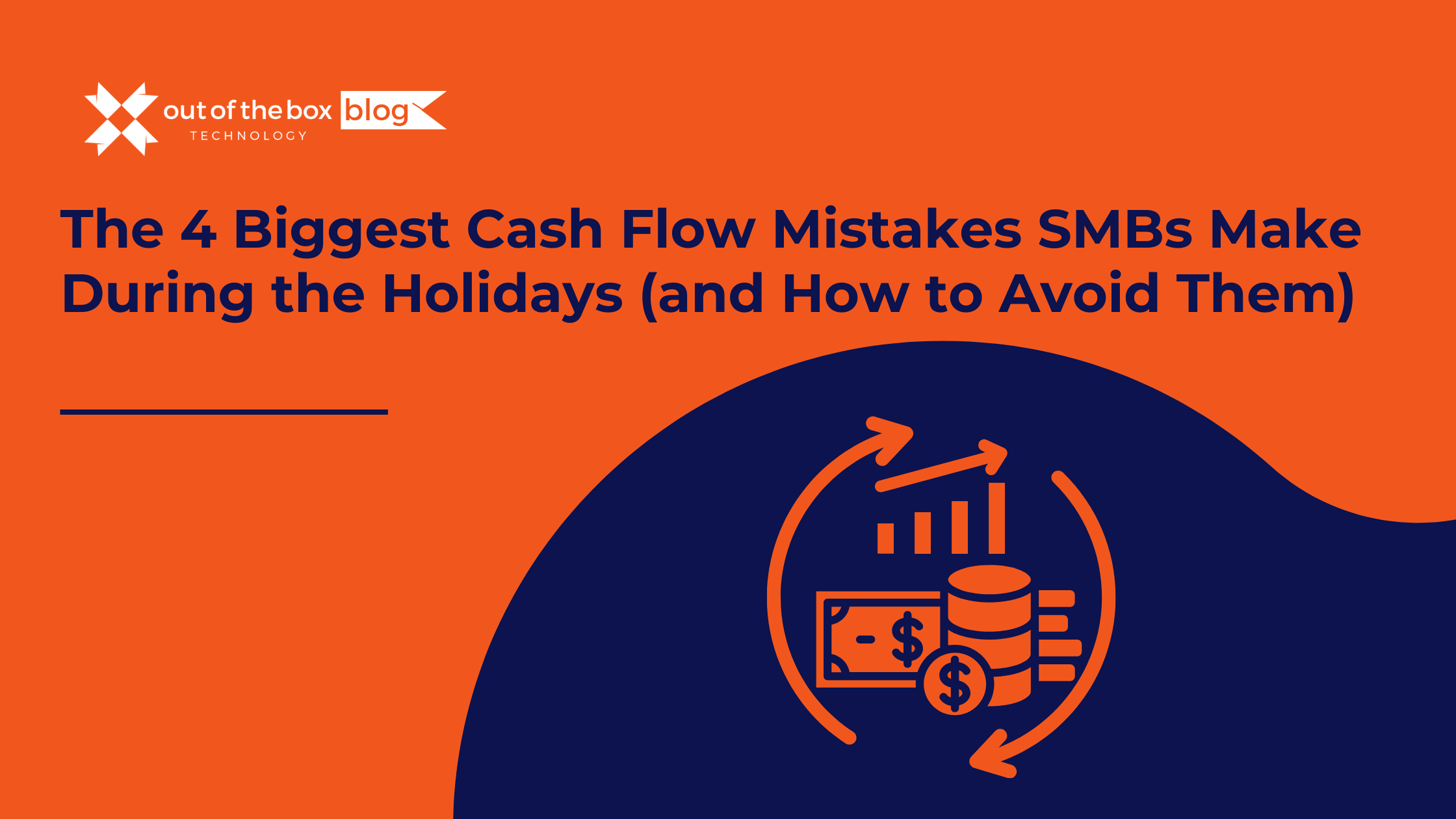If your business is considering a move from Oracle NetSuite to QuickBooks, you’re not alone. While NetSuite is a powerful ERP platform, many growing businesses eventually find that it may be more complex—and costly—than they need. Whether you’re downsizing, simplifying your accounting systems, or seeking a more cost-effective solution, a NetSuite migration to QuickBooks can be a smart strategic move.
This comprehensive guide covers everything you need to know: when a migration makes sense, what to expect, how to prepare, and what a successful migration looks like.
Why Businesses Are Moving from NetSuite to QuickBooks
While NetSuite offers robust enterprise resource planning (ERP) capabilities, it’s often more than what small to midsize businesses (SMBs) require. Here’s why companies are making the shift:
1. Lower Costs
NetSuite subscriptions can start around $999/month plus $99/user/month, according to G2, whereas QuickBooks Online Advanced typically costs $200/month for up to 25 users—offering substantial savings.
2. Simplified Interface
QuickBooks offers a more intuitive UI, making it easier for small teams and non-accountants to manage day-to-day finances.
3. Faster Implementation
NetSuite implementations often take 3–6 months or more. QuickBooks setup can be completed in just a few days with proper planning and expert help.
4. Reduced IT Burden
QuickBooks Online is fully cloud-based with automatic updates, backups, and minimal need for IT intervention.
Who Should Consider a NetSuite Migration to QuickBooks?
This migration is ideal for companies that:
-
Have fewer than 250 employees
-
Want to reduce software complexity and overhead
-
No longer need deep ERP features like multi-entity consolidations or extensive inventory modules
-
Are primarily focused on accounting, payroll, invoicing, and cash flow reporting
What Data Can Be Migrated from NetSuite to QuickBooks?
Before diving in, it’s important to know which data elements can be transferred and what might need to be recreated or archived.
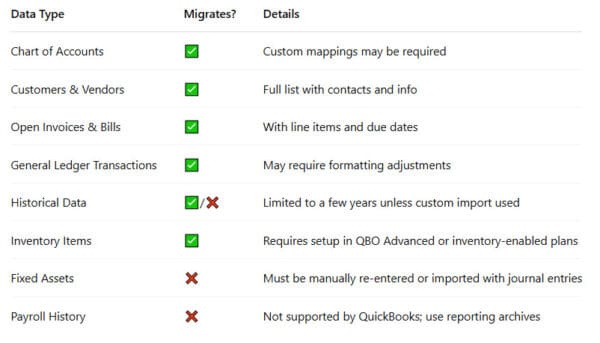
Source: Intuit Migration Guide
Real-World Example: SaaS Company Migrates from NetSuite
Client Profile: A fast-growing SaaS firm with 75 employees
Challenge: NetSuite was overkill for their accounting needs, and they struggled with usability and costs.
Solution: Migrated to QuickBooks Online Advanced with customized workflows and approval automations.
Outcome:
-
Reduced annual software spend by over $12,000
-
Improved month-end closing speed by 40%
-
Empowered in-house staff to manage bookkeeping without full-time NetSuite admin
Netsuite vs QuickBooks: Feature Comparison
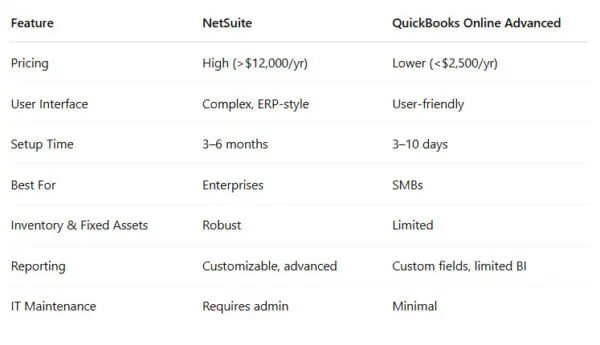
FAQs About Netsuite Migration to QuickBooks
Q: Can I migrate all my historical data?
A: Not easily. Most migrations include 12–24 months of historical data. You can archive older records or store them in read-only NetSuite for compliance.
Q: Is QuickBooks Online secure for enterprise data?
A: Yes. QBO uses 128-bit encryption, regular backups, and SOC 2-certified data centers.
Q: Will I need help from a migration expert?
A: It’s strongly recommended. Certified ProAdvisors or data migration firms can save time and reduce errors.
Q: Can I run NetSuite and QuickBooks in parallel during the transition?
A: Yes, but it requires careful coordination to avoid duplicate transactions or double-entry.
Q: What happens to my NetSuite custom reports?
A: These will not transfer. You’ll need to recreate similar reports using QuickBooks’ custom fields and filters.
Final Thoughts
A NetSuite migration to QuickBooks can be one of the best decisions your finance team makes—especially if you’re aiming to reduce costs, simplify operations, and gain more control over your accounting system. But the key to a successful migration lies in the planning.
By understanding your data, selecting the right QuickBooks version, and partnering with a migration expert, you can transition smoothly and get back to focusing on what matters most: growing your business.
Ready to Migrate?
We specialize in NetSuite to QuickBooks migrations—helping businesses save money and streamline their accounting systems. Let our ProAdvisors guide you through a seamless transition.
Book a free migration consultation today.
